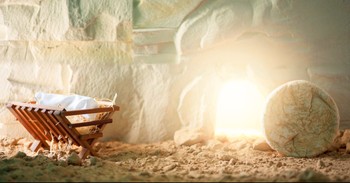
When the members of the Continental Congress approved the American Declaration of Independence that hot, humid day in July of 1776, the last line of that important document read, "And for the support of this Declaration, with a firm reliance on the Protection of Divine Providence, we mutually pledge to each other our Lives, our Fortunes, and our sacred Honor." The signers were willing to pledge everything they had to secure independence; and they recognized that without God's Providential working in history, independence could never be achieved.
The war dragged on with some American successes, but mostly failures. Somehow George Washington was able to keep an army in the field, but by the spring of 1781, the situation looked grim. Provisions for the army were scarce, ammunition was low, the transportation of supplies was inefficient, and there were not enough men in the army to effectively conduct an offensive campaign. In May, 1781, Washington wrote in his journal, "instead of having the prospect of a glorious campaign before us, we have a bewildered and gloomy defensive one, unless we should receive a powerful aid of ships, land troops, and money from our generous allies; and these, at present, are too contingent to build upon."
However, what seemed a wishful dream in the spring, became a wondrous reality by the fall. The French, with a small army under Rochambeau, joined Washington's forces on the Hudson River in August, 1781. Rochambeau persuaded the French Admiral De Grasse in the West Indies to bring up a fleet of ships to aid the American cause. The British general Cornwallis had been fighting across the American South, and on August 2 he occupied Yorktown, Virginia, on the Chesapeake Bay, to hold a port for the British fleet's use. The next day, without knowing of Cornwallis' move, Admiral De Grasse sailed for the Chesapeake Bay area.
Washington and Rochambeau combined their forces in New York and made a rapid march down to the Chesapeake Bay region. Within a month the troops marched four hundred and fifty miles. By the end of September the French fleet had trapped Cornwallis by sea while Washington and Rochambeau had the town of Yorktown under siege. Washington and Rochambeau were both amazed at the success of the combined troop movements. American artillery began to bombard Yorktown, and Cornwallis' situation worsened. He tried to evacuate his troops, but a squall blew up and made this impossible. At 9 A.M. on October 17, Cornwallis sent a messenger asking to surrender. The formal surrender occurred two days later on Friday, October 19, with the British band playing the popular song "The World Turned Upside Down" as they stacked up their arms. The last major fighting of the American War for Independence had ended in a resounding Franco-American victory.
Washington and others saw God's hand in the victory. When the American forces were weakest, it seemed to him that God had worked to bring about the British defeat. On this day, Saturday, October 20, 1781, George Washington released soldiers who was under arrest or confinement so that they might celebrate. As the next day was Sunday, he issued orders to the army that "Divine service is to be performed tomorrow in the several brigades and divisions. The commander-in-chief recommends that the troops not on duty should universally attend with that seriousness of deportment and gratitude of heart which the recognition of such reiterated and astonishing interpositions of Providence demand of us."
Bibliography:
- Adapted from an earlier Christian History Institute story by Diana Severance, Ph.D.
- "Surrender at Yorktown."
http://www.publicbookshelf.com/public_html/Our_Country_vol_2
/surrender_bee.html) - Hart, Benjamin. Faith and Freedom; the Christian Roots of American Liberty. San Bernardino, California: Here's Life, 1988.
Last updated July, 2007







